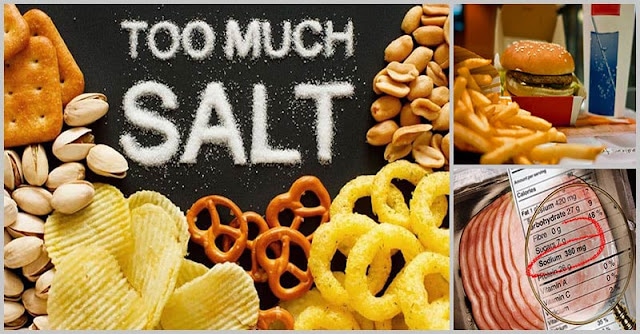According to the Center for Disease Control and Prevention, about 75 million American adults – 1 out of every 3 – have high blood pressure; and only about half, or 54% have their condition under control.
High blood pressure or hypertension is a dangerous condition because it increases your risk for other diseases like a heart attack, kidney disease, stroke, and chronic heart failure.
There are certain steps you must follow to control or prevent high blood pressure and its complications.
Limiting your salt intake is one of the important steps that most doctors recommend. The Dietary Guidelines for Americans set the recommended sodium intake at 2,300 milligrams (mg) per day.
However, guidelines recommend further limiting your daily sodium intake to just 1,500 mg if you have hypertension or prehypertension.
How Salt Affects Your Blood Pressure
The natural sodium balance in the body is disrupted by a heavy salt diet. Your kidney would have trouble keeping up with the excess sodium in the bloodstream.
When sodium accumulates, the body holds on to water to dilute the sodium. This leads to an increase in both the volume of blood in the bloodstream and the amount of fluid surrounding cells. The heart has to work more when there is an increase in blood pressure. This extra work and pressure slowly constrict the blood vessels, leading to high blood pressure.
Also, a high level of sodium in the body causes a reduction in the synthesis of nitric oxide, an arteriolar vasodilator. When there is less synthesis of nitric oxide, the blood flow experiences more resistance due to the constriction of blood vessels, also contributing to high blood pressure. A decrease in dietary sodium leads to a small decrease (1.1 mm Hg) in median systolic but not diastolic blood pressure, according to a study published in the Journal of Renal Nutrition in 2009.
Another study published in 2013 in the BMJ found that a reduction in salt intake for four or more weeks causes a significant drop in blood pressure in both hypertensive and normotensive individuals. Moreover, it was concluded by a 2014 study published in Electrolytes & Blood Pressure that a reduction of dietary salt intake decreases the number of deaths from strokes, hypertension, and cardiovascular disease.
Aside from blood pressure, high salt intake can also damage your aorta, heart, and kidneys without increasing blood pressure; and also is bad for your bones. According to the Harvard School of Public Health, people over age 50, people who have diabetes, and people who have high or slightly elevated blood pressure should limit salt intake as they are at high risk of developing health problems.
Tips to Limit Your Salt Intake
There are more things to bear in mind when it comes to limiting your salt intake. Keep these important tips:
- Keep a close eye out for the words “soda” and “sodium” as well as the symbol “Na” on labels, as these give a clear indication that sodium compounds are present.
- Check the nutrition labels for the amount of sodium in a product when shopping. High in processed foods like tomato sauce, canned foods, soups, condiments, and prepared mixes usually have high sodium content.
- Whenever possible, buy unprocessed or minimally processed foods.
- Use just a pinch of high-quality Celtic or Himalayan sea salt instead of processed salt.
- While cooking, use spices, pepper, and herbs to add flavor to your dishes.
- Avoid foods like hot dogs, pizza, white bread, flour tortillas, processed cheese, spaghetti with sauce, ham, ketchup, and cooked rice as these foods are usually high in salt.
- Replacing table salt with sea salt or kosher salt does not mean that you can put as much as you want in your food. Both kosher salt and sea salt contains a good amount of sodium.
- To improve your health, follow the Dietary Approaches to Stop Hypertension (DASH) diet.
- Foods rich in potassium should be consumed to help you relax your blood vessels, excrete the sodium, and decrease your blood pressure.









